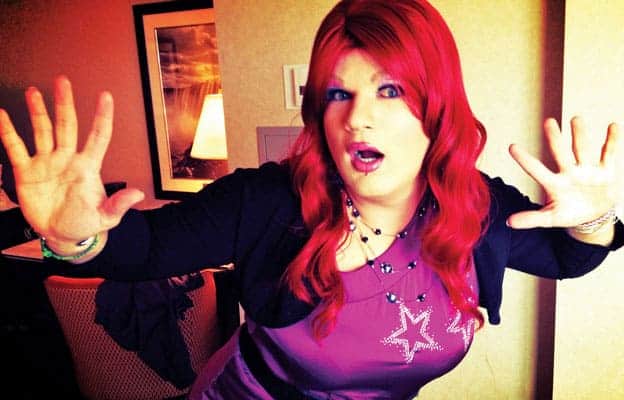Frank Austin proves with his new book, When the Milk Sours, that once again, a stroke is not going to slow him down.
![Frank Austin hopes his new book, When the Milk Sours, will help stroke survivors, their families and the community understand the different realities of living with aphasia.[Whitney Neilson / The Observer]](https://www.observerxtra.com/content/images/wp-content/uploads/2014/10/post_news_book.jpg)
Also the co-founder of Expressive Café, a support group for stroke survivors and aphasia sufferers, Austin says he wanted to share a range of different people’s stroke stories with a larger audience.
The book, roughly 140 pages, tells Austin’s story after suffering a stroke six and a half years ago. It also tells the stories of 20 or so other people he’s met along the way who’ve had strokes. Aphasia is classified as a language disorder that affects the communication of many stroke survivors.
“It’s not that long, but for me it was like a dictionary,” Austin said with a laugh.
The book took him five years to write because he uses a speech recognition software that types what he says into a text document. The book was also a long-time coming because the aphasia support group took precedence. The organization has proven to be a boon to participants
“Faithfully every week, approximately a dozen and a half are in there,” Austin said. “That will probably come down a bit over the winter months, that’s fine. We’ve never gone less than 10. Last year we had one major storm. I showed up here not expecting anyone and 10 people showed up. They acknowledge that it’s valuable.”
The book began as a form of therapy for him, helping him to read, research and cognitively put down ideas from his readings. Eventually it became much more than that and Austin says he needed to know there were more answers out there about aphasia, besides the textbooks and doctors.
“Things we take for granted, like I used to, reading comprehension,” Austin said. “That itself took nine months of the editing. I didn’t think it would get to this stage. I put it aside a few times.”
Two editors helped him put together the book, to lay it out properly and ensure what he was saying to the computer made sense in print. He says the book is supposed to be written in layman’s terms to help stroke survivors, their family, and professionals understand the different realities of living after a stroke and with aphasia.
“When I started playing with the idea, I thought, ‘milk, what do you do when it gets sour?’ Well, make cheese. That’s what I’m hoping to do with it.”
“Knowing that I have aphasia it’s difficult to formulate what I want to say,” Austin said. “Even if I’m using speech recognition software, sometimes it’s only as good as I’m speaking. Dealing with aphasia is difficult that somebody needed to look at it page by page to get back to me and say ‘Frank, I don’t want to take away the context, what did you mean to say?’”
He was able to finish pages upon pages in an hour at times because he could run through his own thoughts freely. For him, this makes a huge difference. But sometimes he tries to do it on his own, a challenging task.
“I try to be independent of it,” Austin said. “If I don’t use it, I’ll hear either from the person I’m trying to send an email to or from my wife that says ‘you should have had me read it first before you sent it.’”
The book is divided into chapters explaining what having a stroke is like, combined with stories and quotes from famous people and movies. In one case he quotes Danny DeVito in War of the Roses, saying “if love is blind, then marriage is like having a stroke.” Clearly, Austin intends to keep the book light, but he says it’s not all like that.
The hardest chapter for him to write is called “Drifting.”
“And what it primarily is, is you’ll hear ‘since I had a stroke, where are my friends?’” Austin said. “That’s why it’s called drifting. When the honeymoon is done when you get back from the hospital, how many people are like ‘what do I do now?”
That chapter highlights how he, and many others he knows, felt once they’d got past the early stages of their condition and tried to get their lives back to normal again.
The Expressive Café has grown and he’d like to see it continue to do so. If the book finds success, Austin hopes to use some of the money to create other support groups.
The book can be purchased through Volumes Publishing, and will be available at Chapters and Amazon in the future.
“No two strokes are the same. It’s like a fingerprint.”









